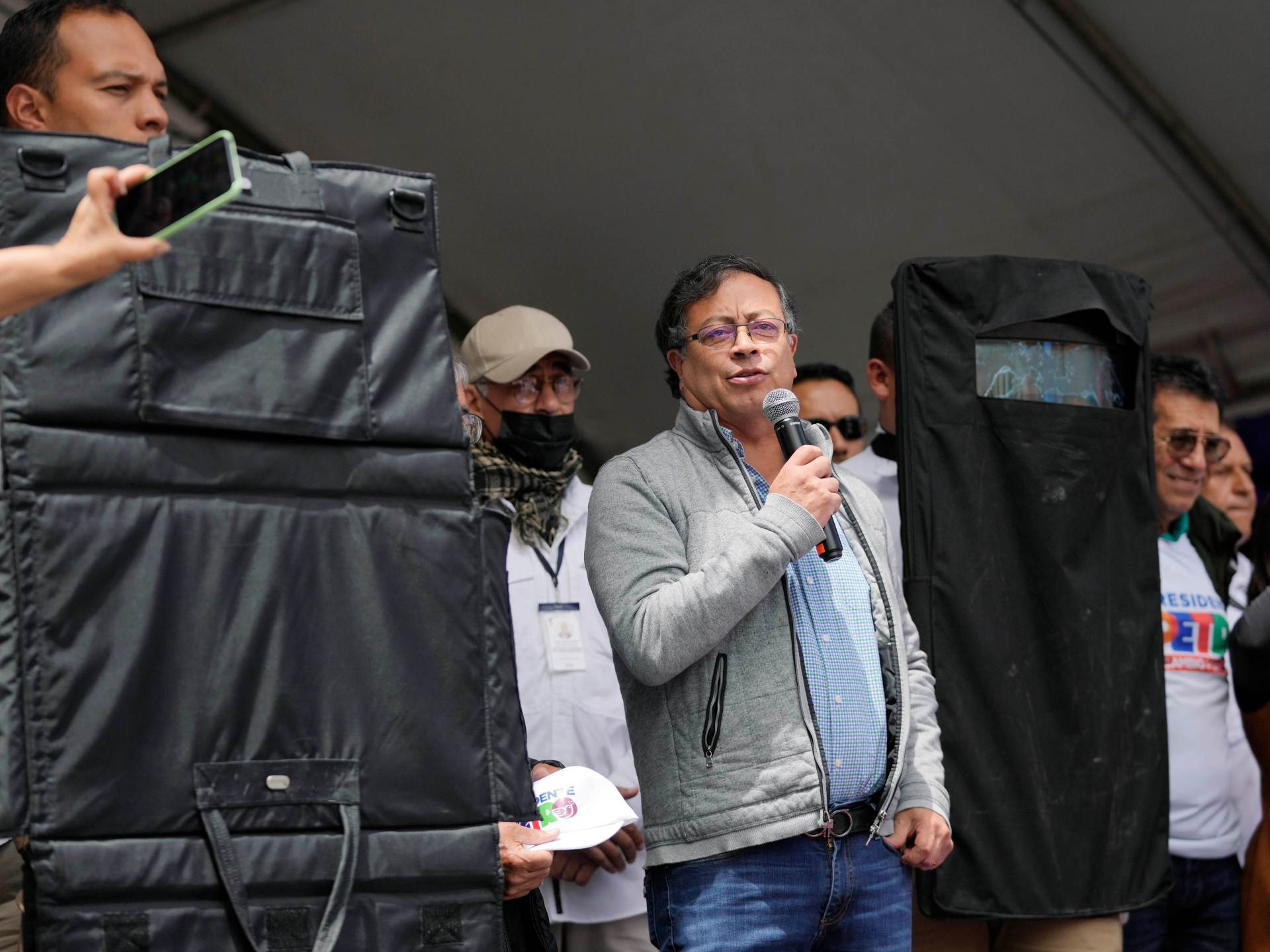South America
Petro prompts Colombian government chaos with demand for resignations

A Government in Crisis: President Petro’s Call for Resignations
President Gustavo Petro of Colombia has sparked widespread chaos within his government after demanding the resignation of his entire cabinet. This unprecedented move came just days after Petro publicly criticized his ministers on live television, accusing them of underperforming and failing to deliver on key projects. The president’s frustration was evident as he addressed the nation, expressing his dissatisfaction with the progress made by his administration. In a dramatic turn of events, Petro took to social media to announce that “there will be some changes in the cabinet to achieve greater compliance with the program ordered by the people.” This statement was quickly followed by the resignation of Labour Minister Gloria Ramirez, who echoed the president’s sentiments, stating that “politics must proceed without sectarianism and without ambiguities.”
Building Tension Within the Government
The tension within Petro’s government has been simmering for weeks, with the president’s recent appointments causing significant friction among his ministers. One of the most contentious decisions was the appointment of Laura Sarabia, Petro’s former chief of staff, as foreign minister. Sarabia’s nomination was met with fierce opposition due to her involvement in a corruption investigation and allegations of illegal wiretapping. The appointment came at a particularly sensitive time, as Petro was already engaged in a high-stakes standoff with US President Donald Trump over migrant deportation flights. The situation only escalated when Petro subjected his cabinet to a five-hour public dressing-down on state TV, berating several ministers, including those in charge of trade, education, and health, for their failure to meet key project deadlines.
The Fallout: Resignations and Protests
The aftermath of Petro’s public rebuke saw a wave of resignations from his cabinet, with several high-ranking officials stepping down in protest. Environment Minister Susana Muhamad was among the first to leave, citing her opposition to the appointment of Armando Benedetti to the cabinet. Benedetti, a close aide to Petro, has faced serious allegations of violence against women and influence peddling. Despite these accusations, Benedetti has denied any wrongdoing, claiming that “false stories” are being spread about him. The labour and environment ministers were soon joined by Culture Minister Juan David Correa and Jorge Rojas, the head of the state agency DAPRE, which manages large amounts of state funds. These resignations have left the government in disarray, with many questioning Petro’s leadership and the future of his administration.
The Controversy Surrounding Laura Sarabia
The appointment of Laura Sarabia as foreign minister has been a major point of contention within Petro’s government. Sarabia, who previously served as Petro’s chief of staff, has been implicated in a corruption investigation and is alleged to have been involved in illegal wiretapping. Despite these serious allegations, Petro stood by his decision to appoint her, arguing that she was the best candidate for the role. However, this move has been met with widespread criticism, both from within the government and from the public. Many have questioned Petro’s judgment, arguing that appointing someone with such a controversial past undermines the credibility of his administration. The backlash against Sarabia’s appointment has only added to the growing sense of unease within the government, with several ministers openly expressing their disapproval.
The Broader Implications of the Crisis
The current crisis within Petro’s government has far-reaching implications for the country. The president’s decision to demand the resignation of his entire cabinet has created a power vacuum, with many questioning who will take charge of key ministries in the coming days. The wave of resignations has also raised concerns about the stability of the government, with opposition parties seizing on the chaos to criticize Petro’s leadership. As the situation continues to unfold, many are wondering whether Petro’s administration will be able to recover from this blow. The president’s ability to navigate this crisis will be crucial in determining the success of his term in office and the future of his political agenda.
A Call for Unity and Reforms
In the midst of this turmoil, Petro has called for unity and reforms within his government. The president has emphasized the need for his administration to move forward without sectarianism and ambiguities, a sentiment echoed by the resigning Labour Minister Gloria Ramirez. However, the current crisis has highlighted deep divisions within the government, with many ministers expressing their dissatisfaction with Petro’s leadership style and decision-making. As the president seeks to rebuild his cabinet and restore confidence in his administration, he will need to address the underlying issues that have led to this crisis. This includes not only making changes to his cabinet but also working to rebuild trust with his ministers and the public. The coming weeks will be crucial in determining whether Petro’s government can overcome this period of instability and continue to work towards the goals set by the people.











